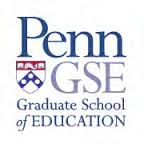![]() Penn Language Center was established in 1989 for the purpose of expanding, intensifying and enriching Penn’s language curriculum. The University of Pennsylvania has a long and distinguished record in the teaching of foreign languages and plays a leading role in the major research fields related to foreign language learning and teaching. The most significant feature of the PLC allows for a structural flexibility that has made it possible to respond to changes in demand for instruction in a variety of languages. The PLC has been able to serve growing language instruction needs that could not be covered within the regular programs of established departments. PLC’s mission is three-fold: 1) the instruction of the less commonly taught languages and languages for specific purposes (e.g. business, medical languages); (2) faculty development for language instructors across campus: PLC organizes conferences, workshops, lectures, and seminars on topics of practical and theoretical interest; provides technology training; supports conference travel; awards teaching innovation grants, maintains a resource library, etc. (3) research that focuses on intercultural competencies, technology, autonomous learning, and FL acquisition; PLC also is involved in outreach and articulation with secondary schools.
Penn Language Center was established in 1989 for the purpose of expanding, intensifying and enriching Penn’s language curriculum. The University of Pennsylvania has a long and distinguished record in the teaching of foreign languages and plays a leading role in the major research fields related to foreign language learning and teaching. The most significant feature of the PLC allows for a structural flexibility that has made it possible to respond to changes in demand for instruction in a variety of languages. The PLC has been able to serve growing language instruction needs that could not be covered within the regular programs of established departments. PLC’s mission is three-fold: 1) the instruction of the less commonly taught languages and languages for specific purposes (e.g. business, medical languages); (2) faculty development for language instructors across campus: PLC organizes conferences, workshops, lectures, and seminars on topics of practical and theoretical interest; provides technology training; supports conference travel; awards teaching innovation grants, maintains a resource library, etc. (3) research that focuses on intercultural competencies, technology, autonomous learning, and FL acquisition; PLC also is involved in outreach and articulation with secondary schools.
Penn Language Center
715-716 Williams Hall
University of Pennsylvania
Philadelphia, PA 19104-6305
plc@ccat.sas.upenn.edu
plc.sas.upenn.edu
 The Educational Linguistics Division, a unit within Penn’s Graduate School of Education, was founded in 1976 in order to provide researchers and educators with an interdisciplinary space in which to examine language learning, language teaching, and the role of language in learning and teaching. Faculty and students in the Ph.D. specialization in Educational Linguistics and the Master’s specializations in Teaching English to Speakers of Other Languages (TESOL) and Intercultural Communication (ICC) are involved as practitioners and researchers in and out of educational settings, locally and around the world, on topics such as:
The Educational Linguistics Division, a unit within Penn’s Graduate School of Education, was founded in 1976 in order to provide researchers and educators with an interdisciplinary space in which to examine language learning, language teaching, and the role of language in learning and teaching. Faculty and students in the Ph.D. specialization in Educational Linguistics and the Master’s specializations in Teaching English to Speakers of Other Languages (TESOL) and Intercultural Communication (ICC) are involved as practitioners and researchers in and out of educational settings, locally and around the world, on topics such as:
- bilingualism, biliteracy, and bilingual education
- critical language awareness
- educational and social consequences of linguistic diversity
- heritage and Indigenous language teaching and learning
- intercultural communication
- local and global perspectives on English language teaching policy and practice
- mass media and schooling
- multilingual language planning and policy
For over 40 years, the Educational Linguistics Division has been committed to preparing graduates to be leaders within the field of language education, as both interculturally-minded practitioners and cutting-edge researchers.
Educational Linguistics Division
University of Pennsylvania
Graduate School of Education
3700 Walnut Street
Philadelphia, PA 19104
www.gse.upenn.edu/elx
